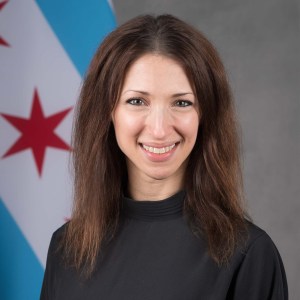Lopez’s civil trial was filed in federal court here in Chicago on March 16th, 2001, a date that will become more import in part three of this series. You can read the complaint here. In this case Lopez sued for the following reasons:
- Excessive force
- Assault & battery
- Intentional infliction of emotional distress
- Unlawful detention
- Police torture
- Conspiracy
- Civil Conspiracy
I will let you read the complaint for a further understanding of each count.
Through the discovery process in this civil case, Lopez’s attorneys determined that not only did this illegal detention happen to others besides Lopez, but that it happened to several hundred individuals a year. The process had “nicknames” like “CI” for continued investigating or “hold past court call” meaning holding a suspect past the next available probable cause hearing.
When detectives are seeking to have charges filed against a suspect they need to get approval from an Assistant Cook County State’s Attorney working in the Felony Review department. Often the detectives are told that they do not have enough evidence to prosecute and that they need to “continue to investigate” the crime. At this point detectives are supposed to release an individual they are not going to charge and bring in front of a judge for a “prompt determination of probably cause.” According to Lopez and his attorneys this is exactly what does not happen.
Under current United States Supreme Court precedent, police can only hold a suspect 48 hours before they either have to charge that individual or release them. In the case of warrantless arrests, suspects should either be charged or released. It is against both the spirit and letter of the law that police arrest a suspect before they have enough to charge that individual. Police are not supposed to arrest an individual just to then attempt to put a case together against the individual. This is what happened to Lopez and it appears to have happened to hundreds of other individuals a year also.
In Lopez’s case in the four days he was held the only evidence the police were able to produce was an eyewitness identification, which they used as probable case to arrest Lopez originally, and his coerced confession, which was false. These facts do not breed a sense of professional police following every lead to the end with an open mind and without prejudice.
As a direct result of the discovery, Lopez’s case was expanded with a motion to certify as a class action. You can read the motion here. Soon after the motion to certify is filed a new judge enters the district. As is protocol, new judges have cases dumped on them that other judges do not want to handle. This case and its newly filed class action certification motion is an example. The new judge in the district was Samuel Der-Yeghiayan.
Der-Yeghiayan’s previous work experience was as an Immigration and Naturalization Service judge. He also is a close personal friend of then US Attorney General John Ashcroft. Ashcroft flew in and attended the investiture of Der-Yeghiayan. When you consider that fact that the US Government was holding hundreds of individuals without charge in places like Guantanamo Bay, you will quickly understand why Der-Yeghiayan failed to rule on the class action motion for over a year. Der-Yeghiayan’s failure to rule on the certification motion led Lopez’s lawyer, Mike Kanovitz from Loevy and Loevy, to remove the motion from consideration and to proceed with Lopez’s case minus the class status.
The trial proceeded along normally until just before the case went to the jury Der-Yeghiayan decided, read his ruling here, that the plaintiffs had failed to prove their case on most of the charges. It includes circular logic that blames Lopez’s coerced false confession for the actions of the police and the duration of his illegal detention. The jury returned a finding for the defendants in the remaining courts after most of the most serious counts were removed from their consideration.
The United States Constitution as well as United States Supreme Court precedent clearly detail that a suspect must be brought in front of a judicial officer to determine the legality of an arrest within 48 hours. There is an exception to this rule that provides for very rare special circumstances that can extend this deadline. Der-Yeghiayan rested his opinion in this case on the premise that the circumstances in this case were indeed special. In his decision he even states the fact that the crime was so “heinous” that by itself allows the police to extend the deadline.
At best Der-Yeghiayan states in his ruling the officers were negligent and not acting with deliberate malice in their handling of Lopez. It seems that Der-Yeghiayan does not believe it to be harmful to be cuffed to a wall in a windowless room for four straight days. It also seems not to affect the judge that Lopez was denied contact with council or his family and that officers seem to have deliberately manipulated his access to food, water, and sleep.
Almost immediately Kanovitz talked of appealing this case because of Der-Yeghiayan’s failure to allow the jury to decide the facts. Rumors started that the City might settle the case after realizing the break they had just been given via Der-Yeghiayan’s decision. The problem for the City was that in the time the certification motion was removed from consideration and the jury’s verdict, another suit had been filed. This case, 04-cv-06804 Dunn, et al v. City of Chicago, was immediately certified as a class action. If the city settled with Lopez they would have to multiply that amount out to all the other plaintiffs.



